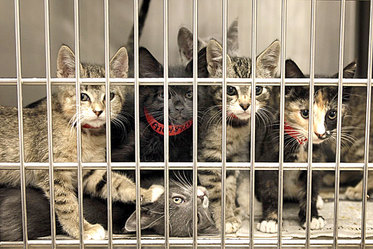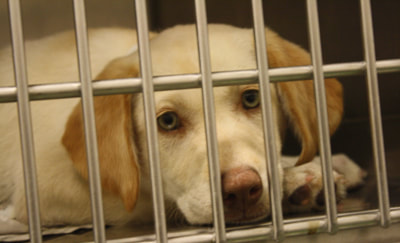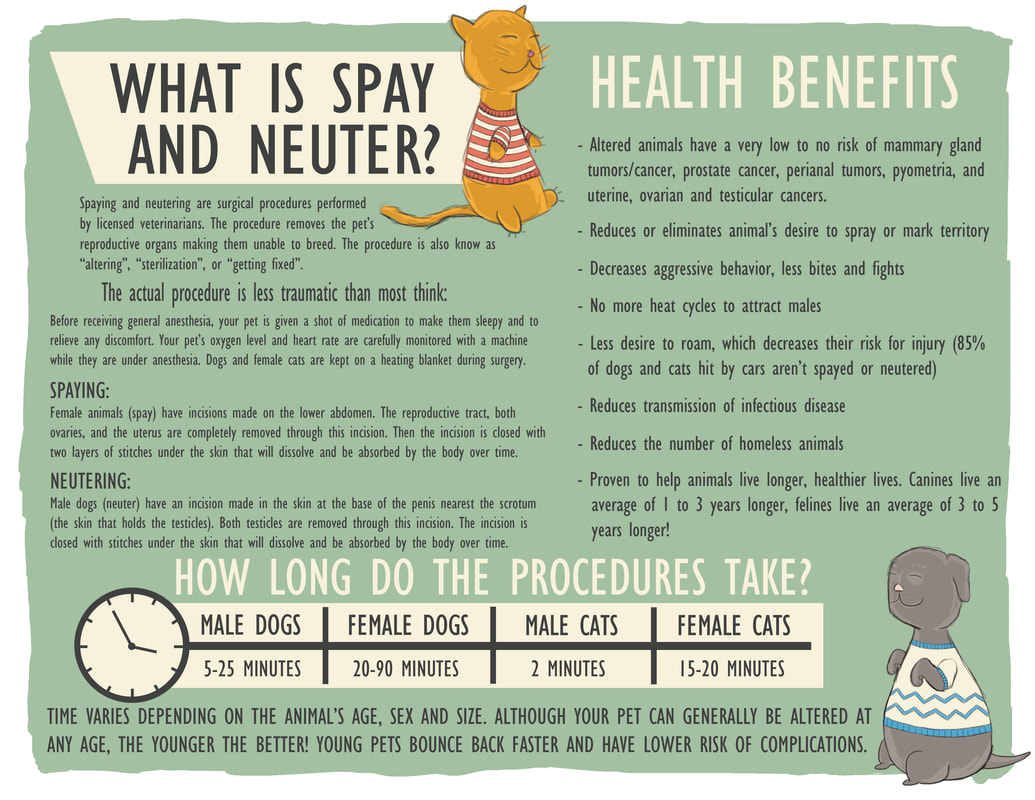Facts about U.S. Animal Shelters:
Currently, no government institution or animal organization is responsible for tabulating national statistics for the animal protection movement. These are national estimates; the figures may vary from state to state.
To read more, please click on the following link. Information take from:
https://www.aspca.org/animal-homelessness/shelter-intake-and-surrender/pet-statistics
- Approximately 6.5 million companion animals enter U.S. animal shelters nationwide every year. Of those, approximately 3.3 million are dogs and 3.2 million are cats. We estimate that the number of dogs and cats entering U.S. shelters annually has declined from approximately 7.2 million in 2011. The biggest decline was in dogs (from 3.9 million to 3.3 million).
- Each year, approximately 1.5 million shelter animals are euthanized (670,000 dogs and 860,000 cats). The number of dogs and cats euthanized in U.S. shelters annually has declined from approximately 2.6 million in 2011. This decline can be partially explained by an increase in the percentage of animals adopted and an increase in the number of stray animals successfully returned to their owners.
- Approximately 3.2 million shelter animals are adopted each year (1.6 million dogs and 1.6 million cats).
- About 710,000 animals who enter shelters as strays are returned to their owners. Of those, 620,000 are dogs and only 90,000 are cats.
To read more, please click on the following link. Information take from:
https://www.aspca.org/animal-homelessness/shelter-intake-and-surrender/pet-statistics
The Real Reasons Animals End Up In Shelters
by G. Heerman
taken from TheAnimalRescue Site.com
For first-time pet owners, there’s often a stigma attached to dogs and cats that come from shelters and adoption centers. Due to the mistaken belief that shelter animals were given up because they didn’t make good pets, many potential owners see them as tainted or undesirable. As a result, shelter animals are frequently overlooked in favor of the puppies and kittens in pet store windows.
The folks at Petfinder.com set out to debunk this myth by publishing survey data showing the real reasons dogs and cats are given up. The results may surprise you, and will hopefully encourage newbie owners to reconsider opening their homes to shelter animals.
Here’s a breakdown of the top reasons dogs and cats end up in shelters*:
Dogs:
1. Owners are moving (7%)
2. Landlord doesn’t allow pets (6%)
3. Cost of care is too high (5%)
4. There are too many animals in the household (4%)
5. Owners have personal problems (4%)
6. Owners’ facilities are inadequate (4%)
7. Owners don’t have enough time (4%)
8. Dog is ill (4%)
9. Dog has been biting (3%)
10. No homes are available for litter mates (3%)
Cats:
1. There are too many animals in the household (11%)
2. Owners are moving (8%)
3. Family members have allergies (8%)
4. Landlord doesn’t allow pets (6%)
5. Cost of care is too high (6%)
6. No homes are available for litter mates (6%)
7. Cats are soiling owners’ house (5%)
8. Owners have personal problems (4%)
9. Owners’ facilities are inadequate (2%)
10. Cat is incompatible with other pets (2%)
Far from being tainted or unadoptable, it seems relinquished dogs and cats are simply at the mercy of unequipped owners or unfortunate circumstances. Often it’s a case of living in the wrong place at the wrong time.
The next time you or someone you know is thinking about making a furry addition to the family, consider checking out your local shelter. Many offer information to potential adopters about the animals’ previous circumstances so you won’t be in the dark about where they’re coming from. An adopted pet will be every bit as loving, loyal and well behaved as a purchased pet, even if it’s former home wasn’t a good fit.
* NOTE: Percentages were compiled in an article on www.petfinder.com. The percentages do not add up to 100% because they represent only the top ten reasons owners gave.
Read more at: http://blog.theanimalrescuesite.com/the-real-reasons-animals-end-up-in-shelters/#za3U5GuPRHpzdiGl.99
References:
Dr. John G. New, Jr. and Dr. M. D. Salman , et al.“Human and Animal Factors Related to the Relinquishment of Dogs and Cats in 12 Selected Animal Shelters in the United States.” Journal of Applied Animal Welfare Science 1, no. 3: 207-226.
by G. Heerman
taken from TheAnimalRescue Site.com
For first-time pet owners, there’s often a stigma attached to dogs and cats that come from shelters and adoption centers. Due to the mistaken belief that shelter animals were given up because they didn’t make good pets, many potential owners see them as tainted or undesirable. As a result, shelter animals are frequently overlooked in favor of the puppies and kittens in pet store windows.
The folks at Petfinder.com set out to debunk this myth by publishing survey data showing the real reasons dogs and cats are given up. The results may surprise you, and will hopefully encourage newbie owners to reconsider opening their homes to shelter animals.
Here’s a breakdown of the top reasons dogs and cats end up in shelters*:
Dogs:
1. Owners are moving (7%)
2. Landlord doesn’t allow pets (6%)
3. Cost of care is too high (5%)
4. There are too many animals in the household (4%)
5. Owners have personal problems (4%)
6. Owners’ facilities are inadequate (4%)
7. Owners don’t have enough time (4%)
8. Dog is ill (4%)
9. Dog has been biting (3%)
10. No homes are available for litter mates (3%)
Cats:
1. There are too many animals in the household (11%)
2. Owners are moving (8%)
3. Family members have allergies (8%)
4. Landlord doesn’t allow pets (6%)
5. Cost of care is too high (6%)
6. No homes are available for litter mates (6%)
7. Cats are soiling owners’ house (5%)
8. Owners have personal problems (4%)
9. Owners’ facilities are inadequate (2%)
10. Cat is incompatible with other pets (2%)
Far from being tainted or unadoptable, it seems relinquished dogs and cats are simply at the mercy of unequipped owners or unfortunate circumstances. Often it’s a case of living in the wrong place at the wrong time.
The next time you or someone you know is thinking about making a furry addition to the family, consider checking out your local shelter. Many offer information to potential adopters about the animals’ previous circumstances so you won’t be in the dark about where they’re coming from. An adopted pet will be every bit as loving, loyal and well behaved as a purchased pet, even if it’s former home wasn’t a good fit.
* NOTE: Percentages were compiled in an article on www.petfinder.com. The percentages do not add up to 100% because they represent only the top ten reasons owners gave.
Read more at: http://blog.theanimalrescuesite.com/the-real-reasons-animals-end-up-in-shelters/#za3U5GuPRHpzdiGl.99
References:
Dr. John G. New, Jr. and Dr. M. D. Salman , et al.“Human and Animal Factors Related to the Relinquishment of Dogs and Cats in 12 Selected Animal Shelters in the United States.” Journal of Applied Animal Welfare Science 1, no. 3: 207-226.
ARTICLES WORTH READING:

Overpopulation facts - http://www.snapus.org/spay-neuter-facts/overpopulation-facts.html
Benefits of Spay/Neuter - http://www.spayusa.org/benefits.php
Benefits of Spay/Neuter - http://www.spayusa.org/benefits.php





